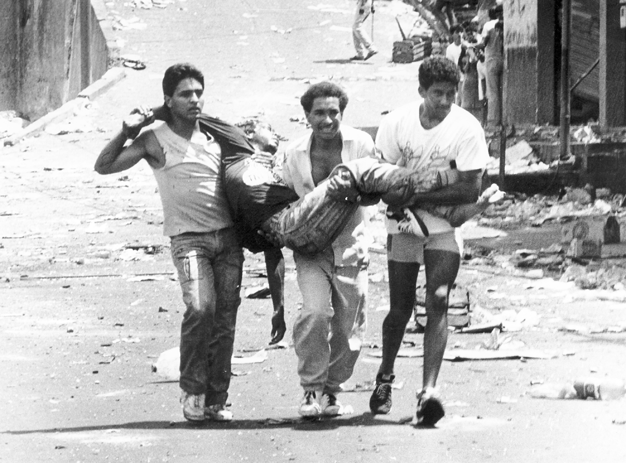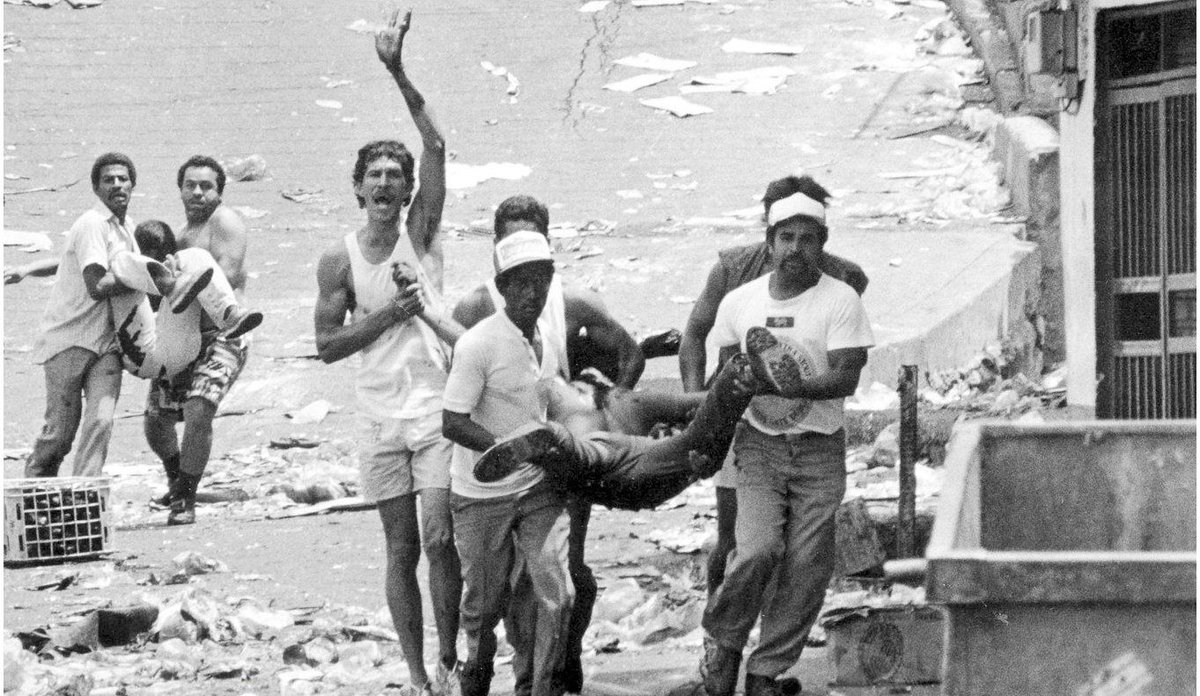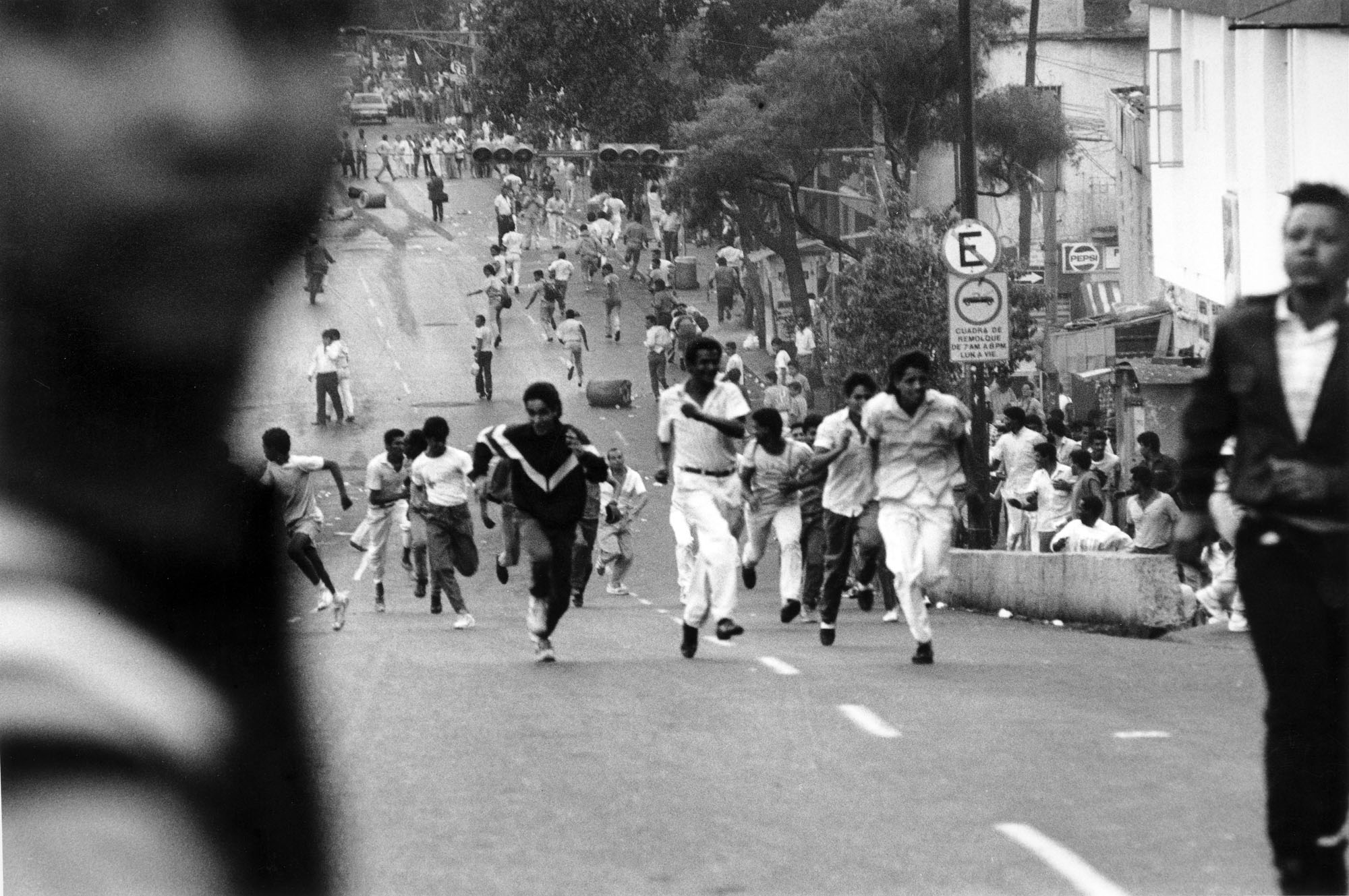OBenario4
OBenario4's JournalVenezuela before Chavez. A remembrance
El Caracazo



 :large
:large


 /@@images/2ed2884c-cd69-4cb9-a730-6e9ab511939a.jpeg
/@@images/2ed2884c-cd69-4cb9-a730-6e9ab511939a.jpeg






ANALYSIS: Venezuelas Caracazo: How Neoliberal Failure Led to State Repression
In February 1989, thousands of Venezuelans took the streets in a wave of protests that highlighted the right-wing misrule in the country. The protests came to be known as the Caracazo — an uprising that began in the capital Caracas — and ultimately shaped the country’s future.
On Feb. 27, the poorest Venezuelans living in the barrios, many in the mountains surrounding Caracas filled with shanty towns, took over the streets in what began as a protest against a new hike on public transportation prices. It became a nationwide movement.
As the police began repressing the demonstrations, a growing number of people joined the protests. Events soon turned violent; the police opened fire after some of the protesters began targeting shops and supermarkets in a desperate attempt to get food.
The day became popularly known as the “Caracazo,” but violence continued throughout the following week. Official figures place the death toll at just under 300, but other estimates indicate up to 3,000 were gunned down in the wave of protest.
(...)
The poorest people bore the brunt of the economic freefall. The situation was so critical that people in Caracas’ slums would eat dog food — Perrina — to sustain themselves. Salaries deteriorated and poverty increased.
During this period, Venezuela was forced to allocate 50 percent of all its export earnings to the IMF in order to pay its debt, with the majority of people losing out.
Venezuela’s old oligarchical order became so discredited that by the 1980s it began to disintegrate. Political crises broke out as various governments were elected, each promising alternatives to the free-market policies that were creating such deep suffering among the people. As each government reneged these promises, demand for a meaningful change grew.
(...)
As waves of protest swept Venezuela, a presidential decree declared a state of emergency, suspending many basic human and civil rights. The government then sent the army to large cities to take control of the situation. Forced disappearances, extrajudicial killings, tortures, raids and other police abuses happened throughout the week.
(...)
The scale was breathtaking. Gidilfredo Solzano, a resident at the 23 de Enero neighborhood — one of Caracas’ biggest barrios — said in “Venezuela Speaks,” “I remember that the police went up there above Apartment Block 22, and shoved the bodies in plastic bags, threw them below, picked them up with a truck and bam, that was that. And the same thing happened with the bodies on the road. They put them in plastic bags and threw them in a truck.”
In later remarks, President Perez backed down from the official claims and blamed the IMF for the crisis and sidestepped responsibility for the killings.
It wasn’t until 2006 that then-President Hugo Chavez publicly recognized the government’s role in the massacre and provided compensation to the victims.
Read more:
http://www.venezuelasolidarity.co.uk/analysis-venezuelas-caracazo-how-neoliberal-failure-led-to-state-repression/
Profile Information
Member since: Sun Apr 30, 2017, 04:29 PMNumber of posts: 252